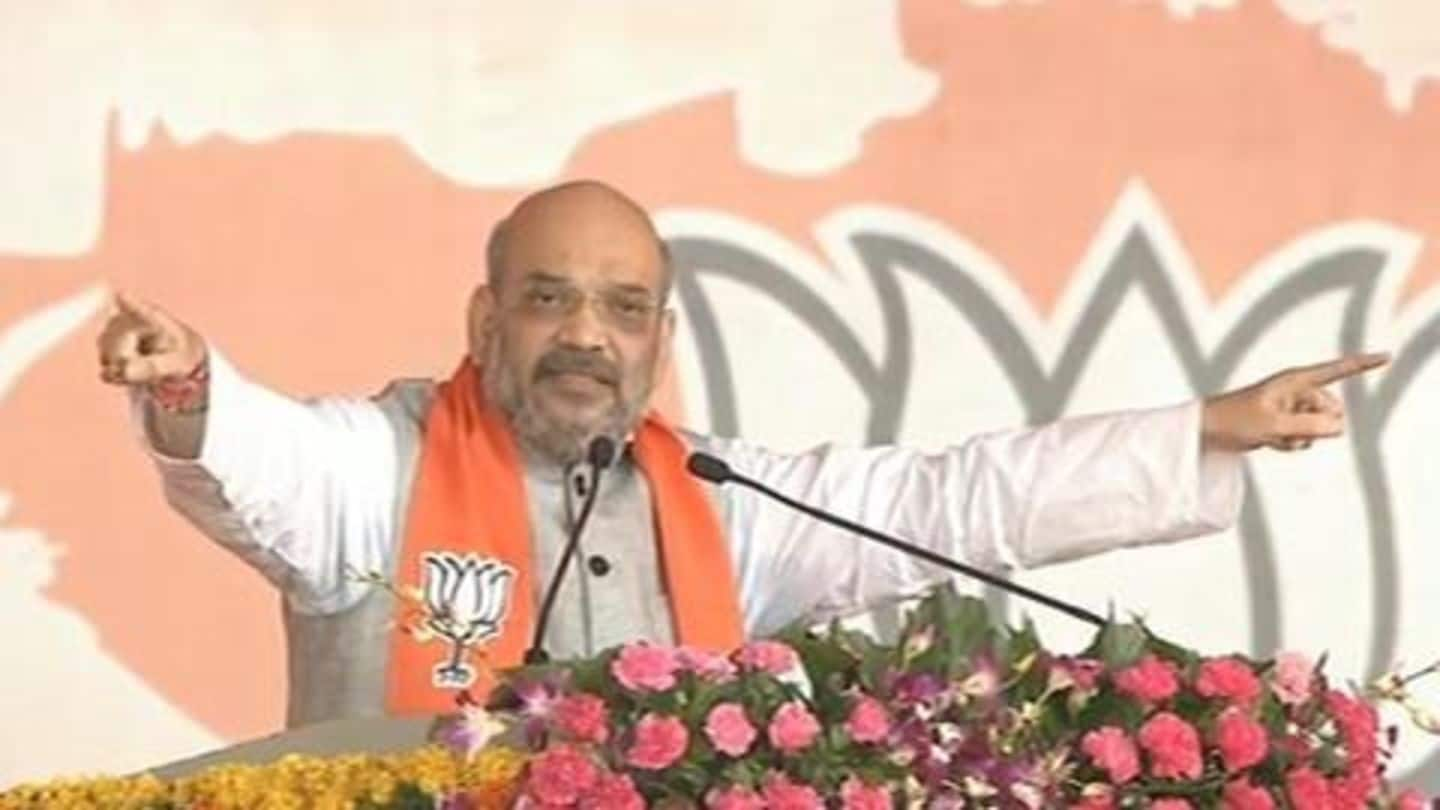
Hindi Diwas: Amit Shah pushes for Hindi as national language
What's the story
On the occasion of Hindi Diwas, Union Home Minister Amit Shah pushed for Hindi to be designated India's national language. Shah made the appeal on Twitter as he said that it is extremely important for one language to represent India's identity on a global scale. The move comes months after several non-Hindi states held anti-Hindi imposition protests against the three-language policy.
Details
'If there's one language that can unite India, it's Hindi'
Shah tweeted today, "India is a country of many different languages, and each language has its own significance, but it's extremely important to have one language represent India's identity globally." He added, "If there's one language that can unite the country, it's the widely-spoken Hindi language." He urged people to promote both their mother-tongues and Hindi to realize Mahatma Gandhi and Sardar Patel's dream.
Twitter Post
Here is what Shah tweeted on Hindi Diwas
भारत विभिन्न भाषाओं का देश है और हर भाषा का अपना महत्व है परन्तु पूरे देश की एक भाषा होना अत्यंत आवश्यक है जो विश्व में भारत की पहचान बने। आज देश को एकता की डोर में बाँधने का काम अगर कोई एक भाषा कर सकती है तो वो सर्वाधिक बोले जाने वाली हिंदी भाषा ही है। pic.twitter.com/hrk1ktpDCn
— Amit Shah (@AmitShah) September 14, 2019
Hindi
Only 43.63% Indians have Hindi as their mother tongue
Now, India doesn't have a national language. Overall, there are 22 scheduled languages in the country, and two of those are recognized as official languages by the Union Government: Hindi and English. According to the 2011 census, only 43.63% of the Indian population recognizes Hindi and its derivatives as their mother tongue. Even so, with half-a-billion speakers, Hindi is the world's fourth-most spoken language.
Criticism
India is much bigger than Hindi, Hindu, Hindutva: Asaduddin Owaisi
Naturally, the Opposition wasn't pleased with Shah's ideas. AIMIM chief and MP Asaduddin Owaisi criticized him for pushing Hindi as India's national language. "Could you try appreciating the diversity of the many mother tongues that dot this land? Article 29 gives every Indian the right to a distinct language, script & culture," Owaisi tweeted. He added, "India's much bigger than Hindi, Hindu, Hindutva."
Twitter Post
Hindi isn't every Indian's mother tongue, lashes out Owaisi
Hindi isn't every Indian's "mother tongue". Could you try appreciating the diversity beauty of the many mother tongues that dot this land? Article 29 gives every Indian the right to a distinct language, script culture.
— Asaduddin Owaisi (@asadowaisi) September 14, 2019
India's much bigger than Hindi, Hindu, Hindutva https://t.co/YMVjNlaYry
Anti-Hindi row
In May, Centre's 'three-language' policy sparked anti-Hindi imposition row
In fact, in May, a draft of the National Education Policy (NEP) proposed a "three language" policy, making Hindi and English compulsory, apart from the mother-tongue in non-Hindi speaking states. The policy was seen as an imposition of Hindi on non-Hindi speaking states, and was met with heavy protests, especially in Tamil Nadu and Karnataka. Eventually, the Centre updated the NEP draft to make Hindi optional.